From the Chicago Reader (June 24, 1988). — J.R.
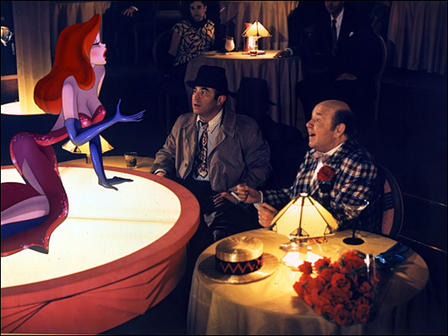
WHO FRAMED ROGER RABBIT
**** (Masterpiece)
Directed by Robert Zemeckis
Written by Jeffrey Price and Peter Seaman
With Bob Hoskins, Joanna Cassidy, Christopher Lloyd, Stubby Kaye, Alan Tilvern, and the voices of Charles Fleischer and Kathleen Turner.
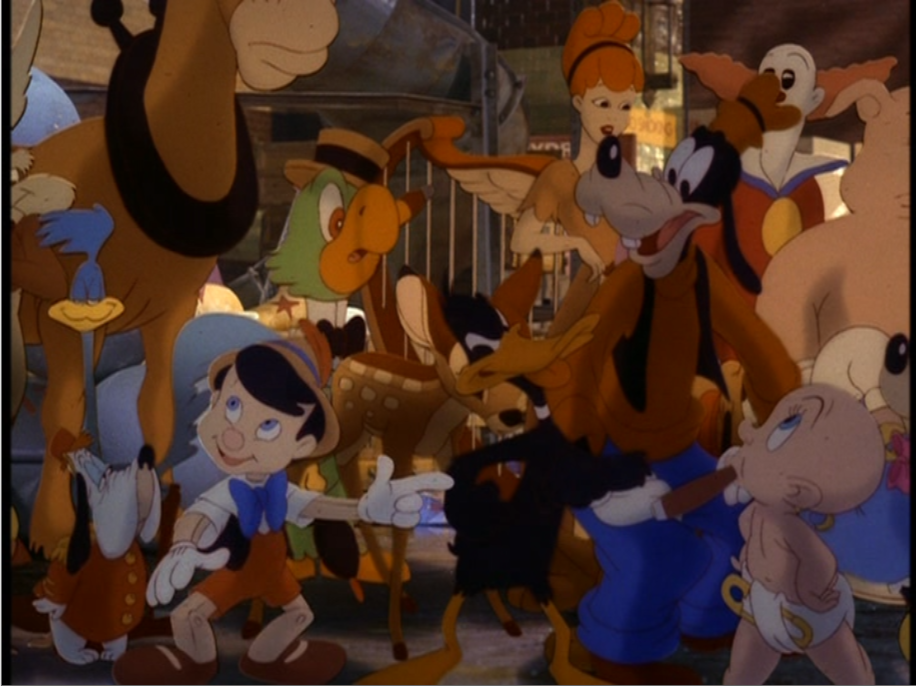
Imagine, if you can, that the characters who appear in animated cartoons actually exist. A repressed minority and endangered species known as Toons, they live on the fringes of Hollywood in 1947 in a ghetto known as Toontown; when they aren’t working for Disney or the other cartoon studios, they take on menial positions as waitresses, bartenders, cigarette girls, bouncers, and entertainers — at a segregated club called the Ink and Paint. (Among the acts at this dive are Donald Duck and Daffy Duck, who perform a duet on two pianos, and a vocalist named Jessica, a curvy vamp who’s a human Toon, accompanied by the bebop crows from Dumbo.)
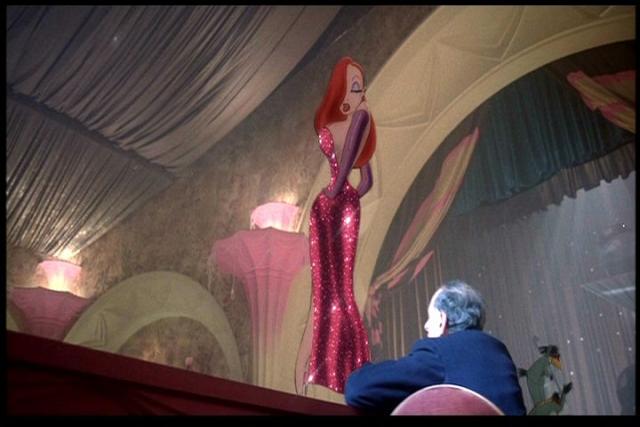

Imagine, as well, that the live-action 40s Hollywood that these Toons are working in is the world of Raymond Chandler’s Philip Marlowe, or at least that world as it was revised and “updated” by Robert Towne when he scripted Chinatown in the 70s. In the place of Chandler’s Marlowe and Towne’s Jake Gittes is Eddie Valiant (Bob Hoskins), a gumshoe whose jobs are mainly Toon-related, and whose partner and brother Teddy was killed a few years ago when an unknown Toon dropped a piano on the brothers, considerably dampening Eddie’s sense of humor and appreciation of Toons in the process. Read more
From the April 1, 1994 Chicago Reader. — J.R.
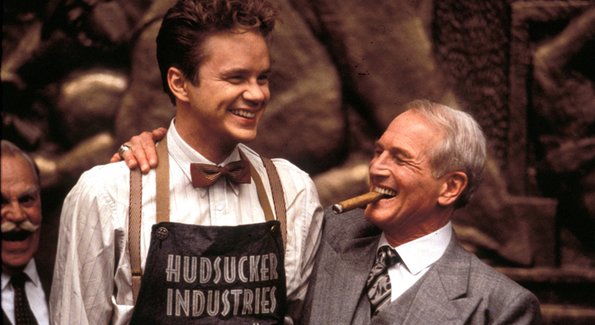
* THE HUDSUCKER PROXY
(Has redeeming facet)
Directed by Joel Coen
Written by Ethan Coen, Joel Coen, and Sam Raimi
With Tim Robbins, Jennifer Jason Leigh, Paul Newman, Charles Durning, John Mahoney, Jim True, and William Cobbs.
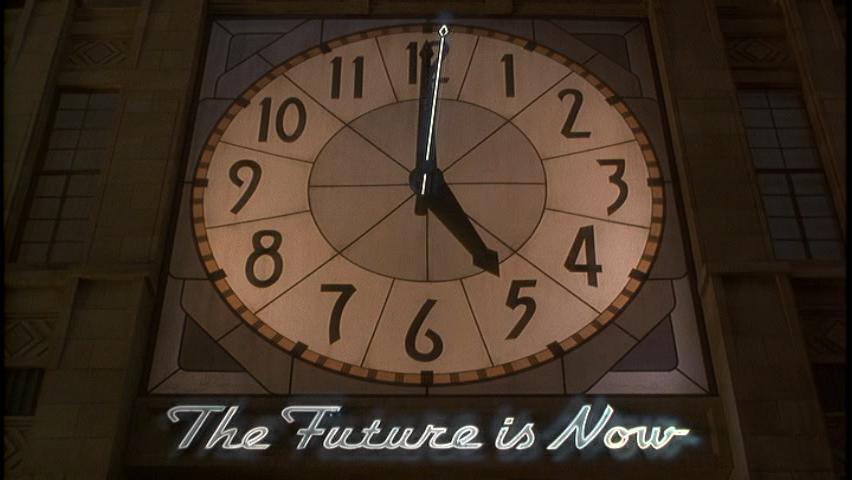
A black man called Moses but who might as well be named Rastus serves as the narrator for the opening and closing segments of Ethan and Joel Coen’s The Hudsucker Proxy. A janitor type who takes care of the giant clock near the top of the Hudsucker Industries building, an art-deco skyscraper in midtown Manhattan, Moses (William Cobbs) knows everything of importance there is to know about Hudsucker Industries, including all of its secrets. And in case you’re wondering how he knows, the Coen brothers have a ready answer: this is Hollywood, and like every other figure in the movie, Moses is a Hollywood cliché. In old-fashioned studio pictures, black janitors or clock tenders with names like Moses are chock-full of down-home wisdom as well as concrete information about what all those funny white folks is doing.
Resurrecting a racial stereotype like Moses for a 90s comedy may sound dubious, but I suspect the Coens would have an answer to that as well. Read more
From the Chicago Reader (December 14, 2001). — J.R.
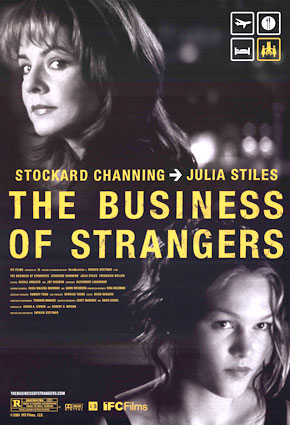
The Business of Strangers
**
Directed and written by Patrick Stettner
With Stockard Channing, Julia Stiles, Frederick Weller, Jack Hallett, and Marcus Giamatti.

The most notable thing about The Business of Strangers, as Andrew Sarris recently suggested in the New York Observer, may be the conjunction of three facts: that the central character of this first feature is a middle-aged woman executive, that it was written and directed by a man, and that it isn’t misogynist.
This sounds like some PC brief, which isn’t generally a good reason for recommending a film. Yet The Business of Strangers doesn’t have any ideological axes to grind, though it’s interested in ideological exploration. And that points to a kind of respect for its audience, not merely a respect for its leading character.
Several reviewers have noted this picture’s resemblance to In the Company of Men, Tape, and Safe. Though I wouldn’t deny the parallels, they generally have more to do with surface effects than overall meaning. Like In the Company of Men, The Business of Strangers focuses on characters in the business world who display predatory behavior in anonymous surroundings — Anywhere, USA — and it uses a percussive score to suggest these characters’ hostilities and power games. Read more








